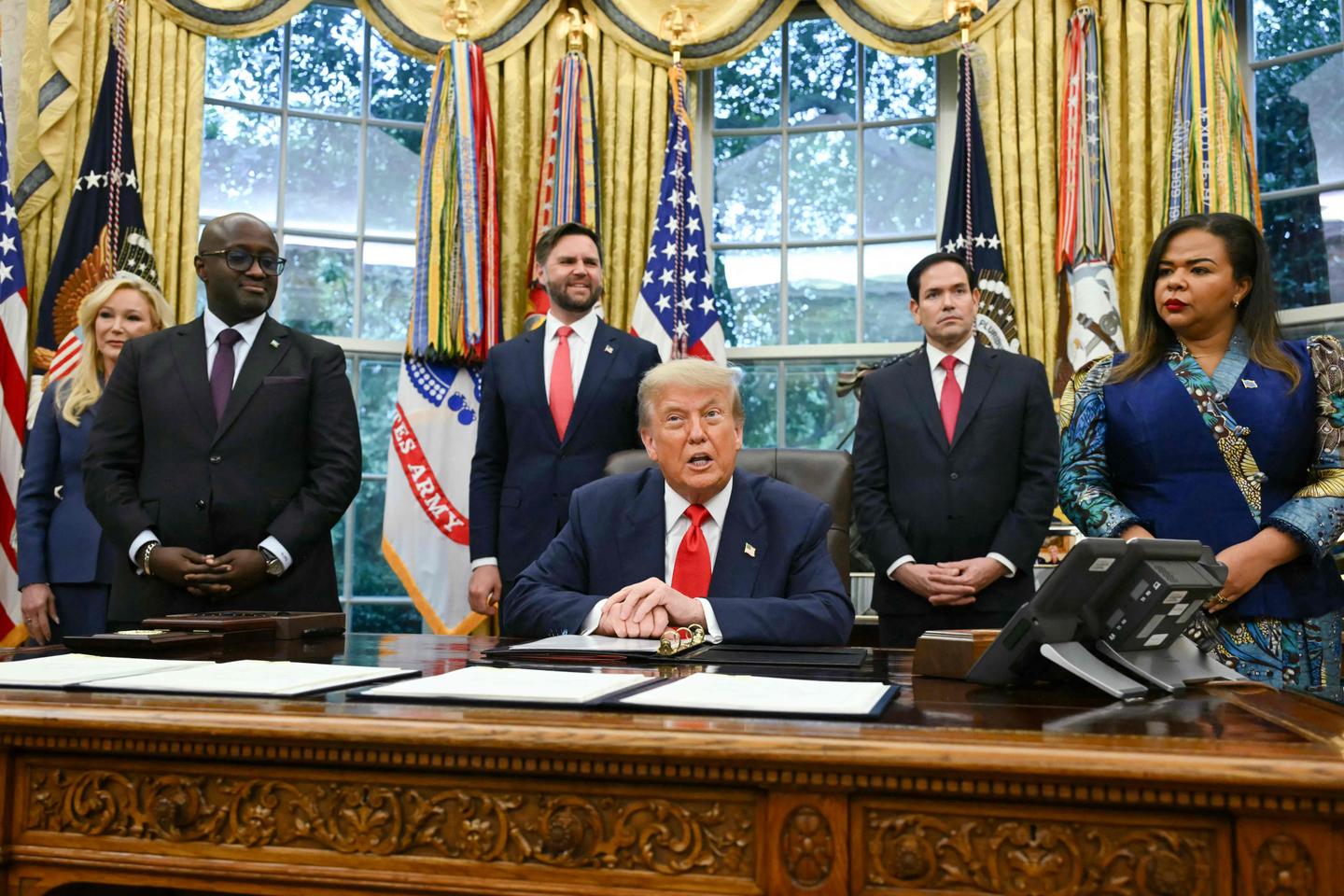


Donald Trump does not claim to be an expert on the conflict between Rwanda and the Democratic Republic of the Congo (DRC), but he knows two things about it: "They were going at it for many years, and with machetes." While not inaccurate, the oversimplification, which featured in his statement on Friday, June 27, to salute the peace deal the United States had brokered between the two countries, was somewhat glib for a war that has killed several million people over nearly 30 years, and not just with machetes. In reality, the US president knows at least two other things about the region, both of which largely explain his unexpected involvement in the negotiations: It is rich in critical minerals, and China is heavily invested there.
Trump's style of diplomacy, which has been hastily and wrongly labeled as isolationist, has been active, messy and interventionist, including where it is least expected. His "peace through strength" concept is, in practice, a deal-making style of diplomacy: Diplomacy as conducted by a handful of the president's trusted agents, in which economic objectives play a significant role and a style which does not rule out the use of force, as seen with the strikes against Iran. It is a diplomatic policy of ceasefires far more than it is one of just and lasting peace agreements.
The US president has, admittedly, stayed stuck on the two major issues he had promised to resolve upon his return to the White House – Ukraine and Gaza – but, in the meantime, his envoys have been busy on all fronts. His loyal ally Steve Witkoff, who, like Trump, comes from the New York real estate world, has had a lot on his plate: Gaza, Ukraine, Russia, Iran.
Staged events
More conventionally, General Keith Kellogg, who is officially in charge of Ukraine, recently made a trip to Minsk, where he secured the release of 14 political prisoners from dictator Alexander Lukashenko, a vassal of Vladimir Putin, including the opposition leader Siarhei Tsikhanouski, who was unrecognizable after five years in prison. More than 1,000 others remain in Belarusian jails, being just as mistreated as Tsikhanouski had been, and it is unclear whether Kellogg's intervention will lead to any further releases.
You have 63.62% of this article left to read. The rest is for subscribers only.
